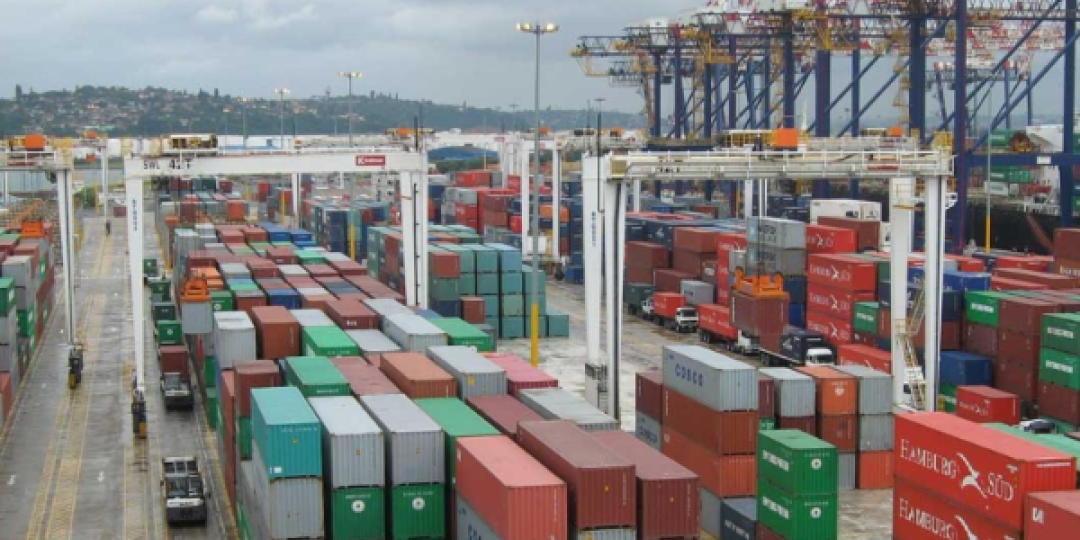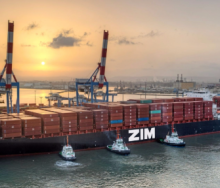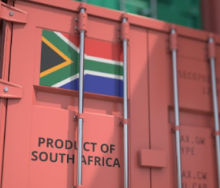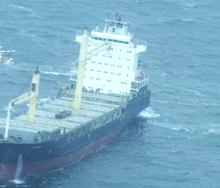Public and private stakeholders have agreed on changes to the landside dispatch of containers at the Port of Durban that will hopefully alleviate congestion and delays for harbour carriers.
The changes include alterations to Transnet’s current truck-slot booking system, the bane of transporters who have been complaining about IT failures preventing hauliers from securing slots, corruption by officials exploiting the system, and revenue loss resulting in business closure.
Earle Peters, chief executive of Durban Terminals at Transnet Port Terminals (TPT), said the changes would be implemented for a two-week trial period from 06h00 on 16 August, and primarily consist of batch-releasing boxes, extending the period for making bookings from four to 48 hours, and a daily 10h00 catch-up meeting with harbour carriers to thrash-out teething issues.
Several private-sector sources have commended the development that emerged from a meeting held between TPT, harbour carriers and related industry stakeholders on Tuesday, adding that they are cautiously optimistic to see how things pan out.
One of them, Junaid Abbas, founder of Africa Trans Carriers, who has decided close his 17-year-old business because of cargo delays at the port, said it made sense to implement a batch-release system at Durban Container Terminal (DCT) Pier 2.
“It means operators fetching 50 or more containers can bypass the booking system and thereby free up slots for smaller operators.”
Peters explained that TPT was “specifically ring-fencing group import releases (GIR) that avoid box shuffling unless necessary.
“GIR carriers can come and remove any of their boxes, which will be set aside from the rest of the stack unloaded from a vessel.”
By eliminating avoidable container movement at the port, machinery such as straddle carriers can be better utilised and deployed to areas of cargo movement stack arrangement where it’s really necessary.
An industry source said this remained to be seen.
“The availability of equipment at the port continues to affect cargo movement and nothing will work while they are struggling with equipment. But it will be interesting to see what happens during the next two weeks.”
As with Abbas, the anonymous industry analyst agreed that GIR dispatching could free up slots through high-volume operators who were no longer required to use the booking process.
“The problem remains whether certain companies are going to grab slots in advance, whether they have trucks or not.”
The source added that the GIR system had a weight issue that could prove problematic for carriers.
“Because you don’t know which one of the boxes you’re going to get first, you don’t necessarily know what the weight of that container is.”
Peters said the three-pronged approach of GIR dispatching, booking period extension and daily industry engagements was based on a “new planning philosophy for harbour carriers”.
“It was well received by operators because they can see it’s an attempt by us to improve what we currently have, and we welcome the opportunity to demonstrate that if they follow this philosophy, they should see a quicker turn-around time in fetching boxes.”
He said it was estimated that GIR dispatching could avoid about 30-50% of moves at DCT Pier 2.
“By tightening operations with larger transporters capable of mass-evacuating containers and limiting them to 30% of slots allocations, we can free up the rest of the slots for smaller operators who now also have more time to make their bookings.
“They don’t have to play the lotto any more in the hope of getting slots,” Peters said.
Not all carriers, though, are sold on TPT’s attempts to solve a landside cargo movement crisis that for years, on and off, has punished the profit margins of transporters.
Abbas said that although he supported the GIR idea, he was not changing his mind.
“I’m in the process of selling my fleet and hope that I can wrap things up by the end of the month.”













